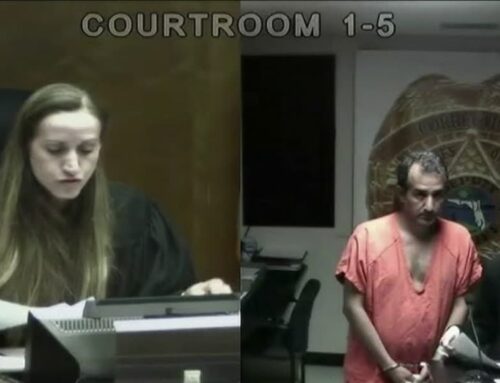Defenses are legal arguments or strategies used to challenge the prosecution’s case and to prove the accused is not guilty in criminal law. Defenses may challenge the prosecution’s evidence, argue that the accused lacked the necessary intent to commit the crime, or say that the accused’s constitutional rights were violated. Defenses can also argue that the prosecution has not met its burden of proving its case beyond a reasonable doubt.
Affirmative Defenses
In criminal law, an affirmative defense is a defense the defendant must prove or establish through evidence rather than relying on the prosecution failing to prove its case. In other words, it is the defendant’s burden to prove that the affirmative defense applies. Unlike other criminal defenses, an affirmative defense shifts the burden of proof to the defendant, unlike other types of defenses.
Criminal trials require the prosecution to prove its case beyond a reasonable doubt. This means that the prosecution must prove all elements of the offense, as well as the guilt of the defendant. Some defenses do not require the defendant to prove anything, such as self-defense, alibi, and insanity. Instead, these defenses focus on challenging the prosecution’s case by showing that the defendant is not guilty of the crime. If, for example, a defendant has shown that they acted in self-defense when charged with murder, the prosecution cannot prove the defendant guilty.
On the other hand, an affirmative defense requires the defendant to prove or establish the defense’s existence by evidence. This means that the defendant has the burden of proving that the affirmative defense applies in their case. This can be a difficult task, as the defendant essentially admits to committing the crime but is trying to show that there were extenuating circumstances that excuse their actions. The insanity defense requires, for example, that the defendant proves they had a mental illness at the time of the crime and that the mental illness affected their ability to comprehend the wrongfulness of their actions if they were charged with murder.
Some defenses may fall into both categories.
Common Criminal Defenses in Florida
Some of the most common defenses to criminal charges under Florida law include the following:
- Self-defense: Can be used when an individual believes they are in imminent danger of bodily harm and uses force to protect themselves. Stand Your Ground is a form of self-defense.
- Defense of others: Can be raised when an individual believes that someone else is in imminent danger of bodily harm and uses force to protect them.
- Defense of property: Can be presented when an individual uses force to protect their property from being taken or damaged.
- Lack of evidence: Can be utilized when the prosecution does not have enough evidence to prove their case beyond a reasonable doubt.
- No criminal intent: Can be used when an individual does not intend to commit a crime.
- Mistaken identity: Can be presented when an individual is misidentified as the person who committed the crime.
- Consent: Can be utilized when an individual has given their consent to engage in the activity that forms the basis of the criminal charges.
- Insanity: Can be argued when an individual suffers from a mental illness or defect that renders them incapable of understanding the nature of their actions or that their actions were wrong.
- Mistake of fact: Can be utilized when an individual has made an honest mistake regarding a fact that is material to the crime charged.
- Alibi: This defense is when the accused can provide evidence that they were not at the scene of the crime at the time it was committed.
- Duress: Can be used when an individual commits a crime under the threat of harm or injury to themselves or another person.
- Entrapment: Can be raised when an individual is induced by law enforcement to commit a crime they would not have committed otherwise.
- Illegal search and seizure: Can be argued when an illegal search or seizure of evidence has violated an individual’s constitutional rights.
- Miranda rights violation: Can be presented when an individual’s rights to remain silent and have an attorney present during questioning have been violated.
- Statute of limitations: Can be presented when the prosecution has not brought charges within the time frame allowed by law.
- Inadmissible evidence: Can be argued when evidence obtained illegally or through improper means is not allowed to be used in court.
- Coercion: Can be used when an individual is forced to commit a crime through threats or violence.
- Necessity: Can be raised when an individual commits a crime because it is necessary to prevent greater harm or injury.
- Inability to form intent: Can be argued when an individual lacks the mental capacity to form the intent to commit a crime.
- Abandonment: Can be used when an individual can show that they had no intent to commit the crime and that they took affirmative steps to abandon the criminal enterprise before it was completed.
Determining what defenses might apply in your criminal case can be a complex process that requires a thorough understanding of the facts of the case and the relevant laws. The most effective way to determine what defenses might apply in your case is to consult with a criminal defense attorney.
Contact an Experienced Criminal Defense Lawyer
A criminal defense attorney will be able to review the facts of your case and advise you on the most appropriate defense strategy. They will be equipped to evaluate the strength of the prosecution’s case and identify any weaknesses or potential issues that could be used as a defense, for example, a violation of your constitutional rights. Additionally, they will be able to provide you with an understanding of the laws that apply to your case. This includes affirmative defenses and other defenses that could apply. They will also be able to advise you on the strength of each defense and the likelihood of success.
Defense strategies will vary depending on the case’s specific facts. If you are facing criminal charges, you must consult a criminal defense attorney as soon as possible. They will protect your rights and give you the highest chance of a successful outcome.







